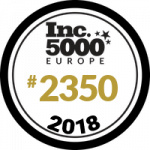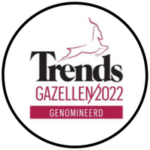Summary In the contemporary business environment, digital procurement is becoming increasingly popular and sought after by businesses around the world. The relationships …
How to gain competitive advantage through procurement in the supply chain
Optimise costs without compromising quality
To enhance cost efficiency while maintaining quality, organisations can implement strategic sourcing and negotiation strategies that effectively balance value and operational efficiency. With 36% of survey participants indicating concerns regarding corporate expenditures, it is essential for organisations to adopt a proactive stance on cost-reduction initiatives.
Utilise economies of scale
By centralising purchases across various departments or geographical areas, companies can secure larger volume discounts, thereby lowering unit costs without compromising the quality of the products.
Global sourcing
Investigating international suppliers can provide access to superior goods at more competitive prices, thanks to lower labour and production costs, while still ensuring compliance with quality standards.
Total cost of ownership (TCO) analysis
TCO encompasses the comprehensive long-term expenses with procurement. By grasping the complete financial implications, organisations can select suppliers that offer cost efficiency and enduring value.
Through strategic sourcing and negotiation, organisations can achieve substantial savings without jeopardising the quality of their products or services, thereby enabling them to uphold operational excellence while managing expenses effectively.
Building strong supplier partnerships for competitive advantage
Building strong supplier partnerships is critical for gaining a competitive advantage, especially as 77% of companies now invest in deeper supplier relationships for resilience. By fostering closer ties with suppliers, businesses can unlock benefits that go beyond cost savings.
Supplier performance management
Regularly monitoring and evaluating suppliers ensures they consistently meet quality and delivery standards. This promotes ongoing improvements, helping maintain efficiency and reliability.
Collaboration
Open, clear communication fosters trust and mutual understanding, allowing businesses and suppliers to work together on innovative solutions, product development, and process improvements.
Innovation
Close partnerships with suppliers enable co-creation of new products, services, or processes, driving innovation and helping businesses stay competitive and ahead of market trends.
Building and nurturing these relationships can lead to a more flexible, resilient supply chain, ensuring businesses remain competitive even in challenging environments.
Harness technology to streamline procurement operations
Harnessing technology to streamline procurement operations is becoming a top priority, with 74% of supply chain leaders increasing investment in technology and innovation. By 2027, purchasing departments aim for a 70% rate of digitised processes, marking a significant shift toward automation and efficiency.
Procurement automation tools
The implementation of automation streamlines repetitive manual processes such as invoice handling and the creation of purchase orders. This enhancement in efficiency minimises errors and liberates time for strategic initiatives, enabling teams to concentrate on higher-value activities such as managing supplier relationships.
AI in procurement
Systems powered by artificial intelligence enhance procurement efficiency by analysing extensive datasets to forecast demand, suggest suppliers, and uncover opportunities for cost reduction. Additionally, AI can facilitate negotiation processes, ensuring that businesses achieve optimal terms without the influence of human bias.
Real-time data analytics
The utilisation of data analytics provides procurement teams with insights into supplier performance, inventory status, and prevailing market trends. This enhanced visibility supports improved decision-making, allowing businesses to swiftly adapt to supply chain disruptions or fluctuations in demand, thereby ensuring resilience.
Investing in these advanced technologies equips businesses to make more informed decisions, enhance supply chain visibility, and significantly diminish manual tasks, thereby fostering more agile and efficient procurement operations.
Achieve sustainability goals through green procurement
Achieving sustainability goals through green procurement is gaining momentum, with 51% of businesses adopting eco-friendly policies. Companies benefit from reduced costs of 5-10% and increased brand value by 15-30%. Additionally, 90% of procurement experts now prioritise carbon-neutral suppliers.
Environmentally responsible sourcing
Engaging with suppliers who emphasise sustainable practices, such as utilising renewable resources and minimising waste, establishes companies as frontrunners in sustainability. This approach not only satisfies consumer demand for ethical products but also contributes to long-term cost reductions.
Minimising carbon emissions
By partnering with suppliers dedicated to lowering emissions and conserving energy, firms can effectively reduce their carbon footprint. This strategy not only supports global sustainability objectives but also increases the company’s attractiveness to environmentally conscious consumers and investors.
Implementing sustainable procurement in the supply chain differentiates businesses by showcasing their commitment to environmental stewardship. As consumers increasingly prefer companies with green initiatives, those that adopt eco-friendly sourcing strategies gain a significant competitive advantage, enhancing their market presence and financial performance.
Mitigating risks and ensuring supply chain resilience
Mitigating risks and ensuring supply chain resilience is critical, especially with 43% of companies expressing significant concerns about supply chain risks affecting growth. Procurement teams must take proactive steps to manage potential disruptions, including supplier interruptions, geopolitical issues, and material shortages.
Supplier diversification
Dependence on a single supplier poses significant risks. By broadening the supplier network—engaging multiple vendors from various geographical areas—organisations can lessen their reliance on any individual supplier. This approach effectively reduces the risks linked to regional disruptions or supplier failures.
Contingency planning
Formulating contingency plans equips procurement teams to handle unforeseen circumstances. This process involves identifying suppliers, setting safety stock thresholds, and developing response protocols for risk scenarios. With a structured plan, companies can swiftly and efficiently address supply chain interruptions.
Scenario analysis
Engaging in scenario analysis enables procurement teams to evaluate potential risks and their effects on the supply chain. By examining various scenarios—such as abrupt demand surges, supplier disruptions, or geopolitical conflicts—teams can devise strategies to address the challenges and ensure operational resilience.
By adopting these strategies, procurement teams can strengthen supply chain resilience, ensuring that organisations remain flexible and adept at managing the complexities of the contemporary global market.
Foster innovation through agile procurement practices
Fostering innovation through agile procurement practices is essential for businesses looking to thrive in a dynamic marketplace. With effective supply chain risk management contributing to over 70% additional brand value, agile methodologies provide a framework for responsiveness and collaboration.
Swift adaptation to market dynamics
Agile procurement empowers organisations to quickly adjust to evolving market conditions, customer preferences, and new trends. Through the use of iterative processes and ongoing feedback mechanisms, companies can modify their procurement strategies in real-time, ensuring they remain in sync with market demands.
Strengthening supplier collaboration
Agile procurement methodologies promote stronger partnerships with suppliers, cultivating an environment of innovation. By collaborating on projects and exchanging insights, organisations can jointly develop new products and services, utilising suppliers’ expertise and resources for shared advantages.
Ensuring supply chain agility
Agile procurement approaches prioritise flexibility in the selection and management of suppliers. This capacity for adaptation allows businesses to swiftly change course, whether by switching suppliers, investigating alternative materials, or modifying logistics strategies, thus reducing potential disruptions.
By embracing agile procurement consulting in the supply chain, organisations can improve their capacity for innovation, effectively respond to challenges, and ultimately enhance brand value while maintaining resilience within their supply chains.
Transform your procurement strategy today with Kronos Group
Embrace innovative practices that enhance efficiency and drive spend optimisation while maintaining the highest quality standards. Our solutions empower you to manage supplier relationships effectively, streamline operations, and stay agile in an ever-changing market. With a focus on sustainability and risk management, Kronos Group helps you navigate challenges while fostering collaboration and innovation. Don’t just adapt—thrive in the competitive landscape.
Fighting the effects of inflation with sourcing and procurement consultants
Stay up-to-date on the latest insights on procurement, finance, and project management.
Summary Strategic procurement has become a necessity in today’s business world and organisations try to remain competitive. Having the right procurement strategies …
Summary The world of consulting has been undergoing a massive transformation and management consulting jobs are experiencing the impacts of these changes. …
FAQ
Procurement plays a crucial role in supply chain management by sourcing and acquiring the goods and services necessary for production and operations. It involves selecting suppliers, negotiating contracts, and managing supplier relationships to ensure timely delivery and quality. Effective procurement strategies help optimise costs, mitigate risks, and enhance overall supply chain efficiency, contributing to the organisation’s competitiveness and profitability.
Companies can improve their SCM by investing in technology, enhancing supplier collaboration, optimising inventory levels, adopting agile practices, and continuously monitoring performance metrics to identify areas for improvement.
Effective supply chain management is crucial for enhancing operational efficiency, reducing costs, improving customer satisfaction, and gaining a competitive advantage. It helps organisations respond quickly to market changes and meet customer demands more effectively.














